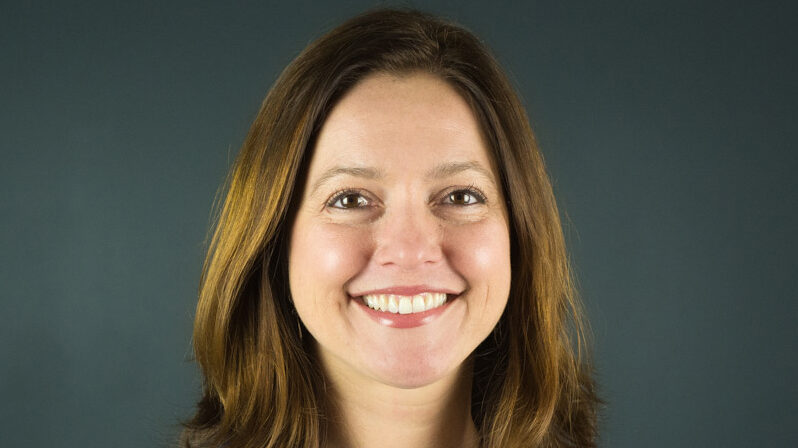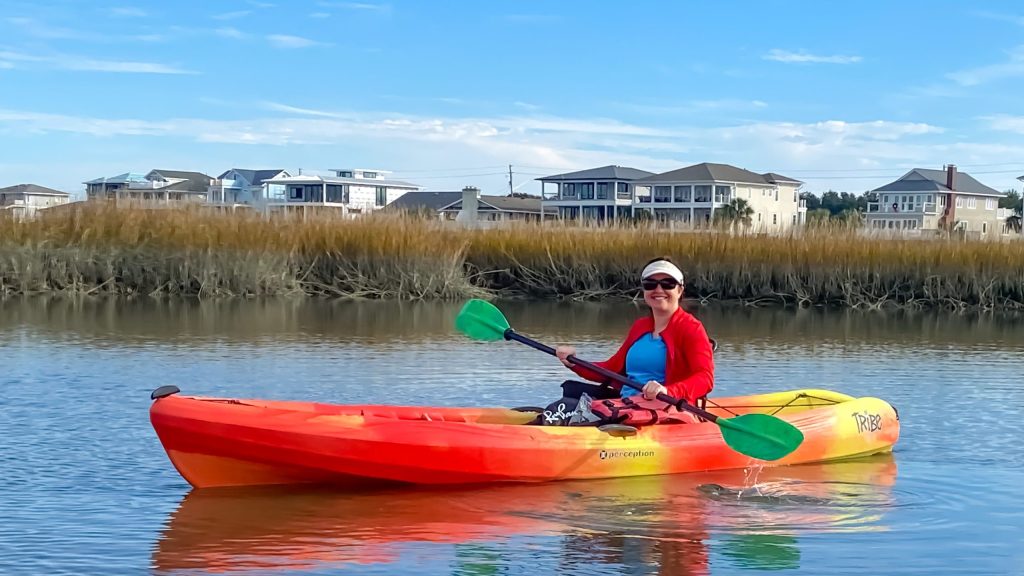Researcher Spotlight – Stephanie Kelly

2021-22 Global Change Fellow
Masters student, Departments of Landscape Architecture & Environmental Planning and Marine, Earth & Atmospheric Sciences
Advisor: Dr. Gavin Smith
Every year the Southeast Climate Adaptation Science Center funds a multi-disciplinary cohort of Global Change Fellows representing colleges across NC State University. The current cohort of students represents the decadal anniversary of this program! Here are some highlights about 2021-22 Fellow, Stephanie Kelly and the applied research she’s conducting.
About You
What do you study?
I am a dual-Master’s student pursuing a Post-Professional Master of Landscape Architecture, a Master of Climate Change & Society, and a graduate certificate in Disaster Resilient Policy, Engineering & Design. My studies span a spectrum of scales related to interdisciplinary site design, planning and policy work. This work focuses on resilience, climate mitigation, ecosystem services, and the built environment, through the triple-bottom lens of environmental, economic, and social benefits. I am very interested in design as a vehicle for interdisciplinary problem solving, and the way in which design and policy inform one another, and the public.
What do you think is the most pressing issue related to global change?
The need for humanity to act quickly, harmoniously, and globally. There are so many dynamic and complex issues related to global change, which threaten our health, safety, and welfare, quality of life, and the fabric of ecological, economic, and societal systems. Threats include biodiversity loss, land-use change, global warming, food/water security, pollution/environmental toxicity, social inequities, and extreme weather, sea level rise, and ocean acidification associated with climate change. Education, awareness, consensus building, and cooperation around global change, in the face of misinformation, the politicization of issues, special interests, and the need for rapid systemic changes to the status quo represent some of the biggest challenges.
What is your dream job?
To be a part of a stellar interdisciplinary team of consultants tackling issues of resilience, climate change mitigation, and ecosystem services from a site design, planning and policy perspective, while addressing the triple-bottom line.
About Your Research

What is the most important thing that you’ve learned?
I have learned a ton, but the most important thing has been the foundation in climate change science and dynamic systems thinking that I received through the Master of Climate Change & Society program. Fundamental climate science and ecological systems education is largely lacking in primary curriculums. This education gap is compounded by modern lifestyles and a growing disconnect with the natural world, making it difficult for individuals, professionals, communities, and leaders to make informed policy and development decisions. Deepening my climate and ecological systems knowledge has been profound to my work.
Who will benefit from your research?
Communities, individuals, government, businesses, collaborative professionals, and ecosystems.
How can your research be used to inform management decisions?
Site design/development projects and policy initiatives help to define associated site management decisions and to establish best practices. My exploration of resilience, climate mitigation, ecosystem services, and green infrastructure informs my approach to site design and policy. In practice, I hope to take this a step further through post-occupancy performance and metrics evaluations. Obtaining performance data is critical for enhancing the body of professional practice research available, to better inform future design and related management decisions, and to help make the business case for more sustainable and resilient projects.
About Your Global Change Fellow Experience
How do you expect the SE CASC Global Change Fellows Program to impact you and your work?
Through the networks and connections forged, and exposure to an impressive range of interdisciplinary research and tools, I believe I will have better opportunities for collaboration, inspiration, and support. I have also been moved by the personal stories, histories, and reflections of some of our panelists and guest speakers, which has not only provided personal growth, but a better framework for my approach to the design of spaces and policy.
What has been the most rewarding part of being a SE CASC Global Change Fellow?
Working as part of a talented interdisciplinary team of individuals, with a passion for climate change and equity issues, and being able to engage the public, have been the most rewarding aspects for me. The exposure to diverse resources and opportunities aligned with my studies has been outstanding.
What advice would you give to an incoming Global Change Fellow to get the most out of their experience?
Immerse, Network, Leverage, Glean, Synergize, Have Fun!
